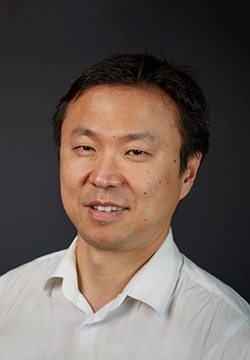Supporting Gifted Students in Their Professional Journeys
- May 23, 2024
- Dr. Jae Yup Jared Jung

My presentation at the 2024 Colloquium of the Mensa Education and Research Foundation, to be held at Kansas City on July 2, 2024 will be on my main area of research in gifted education, the career decisions of gifted students. Specifically, I will be providing an overview of the key factors that influence the career decisions of gifted students, the manner in which gifted students may approach the career decision, the career aspirations of gifted students, the career decision-making processes of gifted students, and a number of recommendations to support gifted students to make optimal career decisions. Thereafter, I will be drawing on my research relating to the career decisions of a number of subgroups of gifted students – twice exceptional students (who are simultaneously gifted and have at least one disabling condition), gifted students in a non-Western cultural context (i.e., Asia) that may provide an interesting point of comparison to gifted students in Western cultures, and gifted students in a specific subject area (i.e., mathematics).
Twice exceptional students are a broad and heterogeneous group who may have a wide range of career outcomes, from careers that are commonly aspired to by gifted students, to careers that are typically pursued by students who have disabilities. In the second half of the presentation, I will outline some of the key factors that may determine which of the numerous career options twice exceptional students are likely to pursue. Thereafter, I will introduce my research on gifted students in Asia, who face many of the same issues facing gifted students in Western societies. In all likelihood, any similarities may be related to the fact that gifted students across the world may share common traits and characteristics associated with their abilities, regardless of the definitions of giftedness that are followed and the types of abilities that are valued. Nevertheless, multiple differences also appear to exist, related to the differing environments, settings, and cultures that gifted students from different parts of the world live in. In particular, family influence, prestige, income, and gender role expectations appear to be stronger and more pervasive in Asian societies, than in Western societies (such as the United States and Australia), as factors that may influence the career decisions of gifted students.
In the final part of the presentation, I will outline the unique issues facing the educational and career decisions of a group of exceptionally gifted students in mathematics – former recipients of a medal or an honorable mention at the International Mathematical Olympiad. An overview will be provided of the undergraduate studies that are pursued, the reasons for the selection of the various areas of study, experiences at university, the decision on whether to pursue a PhD, the manner in which the career decision is framed (i.e., along one of three distinct paths), the factors that may influence the career decision, the influence of others in the career decision, and, finally, how these exceptional mathematicians fare in the career or careers that they ultimately chose.
I hope that the presentation will shed some light on the unique issues and challenges faced by different groups of gifted students when making the career decision.
Apart from my work on the career decisions and development of gifted students, I conduct research on various topics relating to gifted adolescents, including attitudes toward gifted students and gifted education, the underachievement of gifted students, assessment in gifted education, physical giftedness, creativity, and rural gifted education. Indeed, one of my current projects is on major stakeholder attitudes toward gifted students and gifted education, which will be one of the first ever projects to use person-centered methodological approaches that recognize the heterogeneity of stakeholders in the education of gifted students. I will be making keynote presentations on the findings of this project at the International Symposium on Gifted Education of the Chinese Association of Gifted Education in Taipei, Taiwan (in June 2024), and the World Conference of the World Council for Gifted and Talented Children in Braga, Portugal (in August, 2025).
I have also been working actively with the New South Wales Department of Education in Australia, to develop two discussion papers relating to giftedness in the physical and creative domains. Both discussion papers have now been publicly released, to provide a much needed overview of the research and practice associated with educating and supporting gifted students in the physical and creative domains. With the release of these discussion papers, authoritative guidance is now available from the New South Wales Department of Education, for the very first time, on the provision of support for all four of the domains of giftedness (i.e., intellectual, creative, socio-emotional and physical) recognized in Australia.
As a member of the executive committee of the Asia Pacific Federation on Giftedness, I have also been involved in the organization of the 18th Asia Pacific Conference on Giftedness to be held in Takamatsu, Japan (17-20 August 2024). I look forward to welcoming many international delegates to this event that has the theme of “educational environments for transforming gifted minds, lives and communities”. This is the first time that the conference will be held in Japan.
Finally, as the editor of the Australasian Journal of Gifted Education, I am happy to announce the release of the June 2024 issue of the journal, that features interesting articles on public policy and related documents providing guidance on gifted education, the motivational factors relating to the differentiation of curriculum for gifted students, and the impact of knowledge about giftedness on the self-concept of gifted adolescents. I hope you enjoy reading the issue.
Thank you, and I hope to see many of you at the Mensa Colloquium in Kansas City in July 2024!